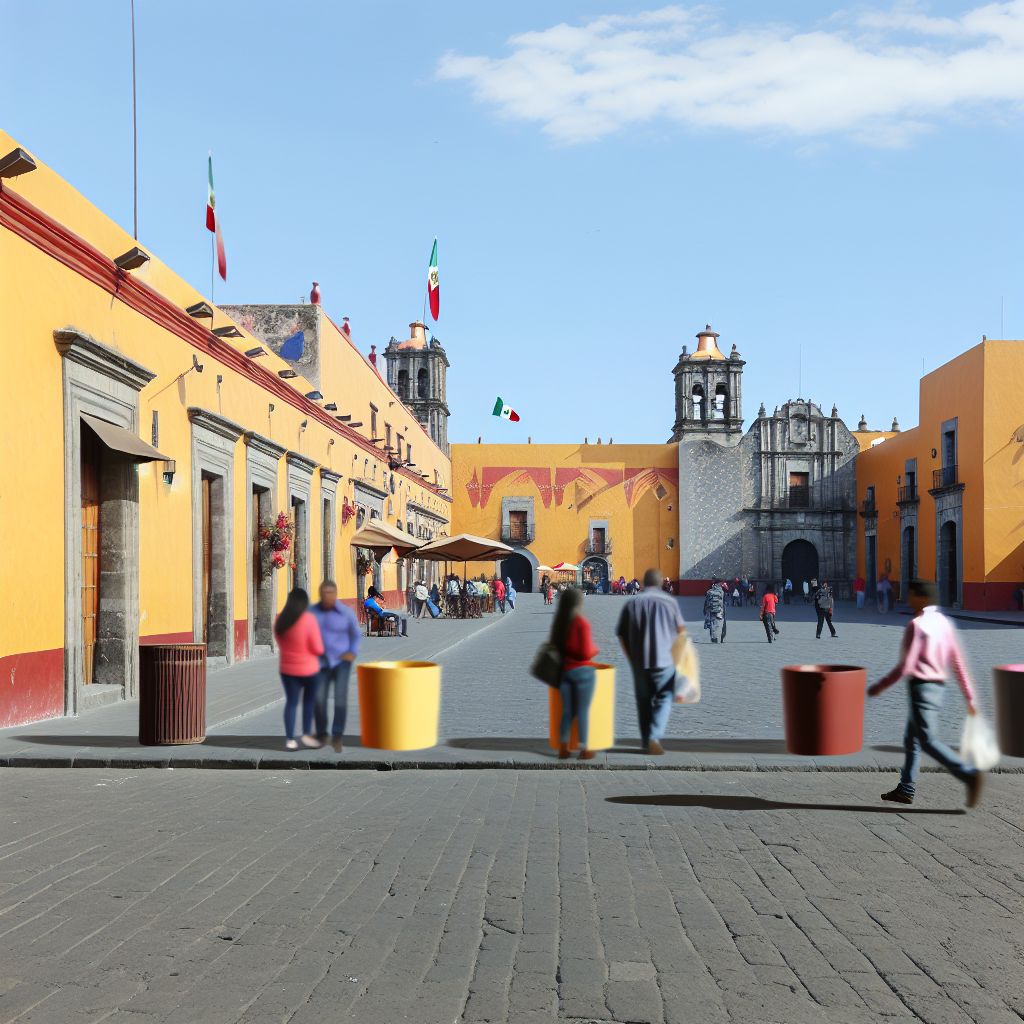In the travel context, Puebla refers to both the city and state of Puebla in Mexico, known for their rich cultural heritage, colonial architecture, and culinary traditions. The city of Puebla, officially named Puebla de Zaragoza, is the capital of the state and is recognized for its beautifully preserved historic center, a UNESCO World Heritage site. Puebla is celebrated for its role in Mexican history, vibrant festivals, and as the origin of mole poblano, a traditional Mexican sauce.
Description

Puebla city boasts an impressive array of colonial-era churches, convents, and buildings adorned with Talavera tiles, a type of painted ceramic that is a hallmark of Puebla's architectural heritage. The city's layout and many of its buildings date back to the 16th century, offering a window into the past and a testament to its historical significance, particularly in the context of the Cinco de Mayo battle against French forces.
The state of Puebla is characterized by its diverse landscapes, including the Popocatépetl and Iztaccíhuatl volcanoes, and the Valle de los Fuertes. It offers a variety of outdoor activities, such as hiking, mountain climbing, and exploring national parks. Additionally, Puebla is renowned for its rich culinary scene, which besides mole poblano, includes dishes like chiles en nogada and cemitas, showcasing the region's agricultural bounty and culinary creativity.
Application Areas
- Cultural and Historical Exploration: Visiting Puebla's historic center, churches, and museums to learn about its colonial past and significance in Mexican history.
- Gastronomy: Sampling Puebla's famous dishes, exploring local markets, and possibly attending cooking classes to learn about the region's culinary techniques and flavors.
- Nature and Adventure: Engaging in outdoor activities in the state's national parks and visiting natural wonders like the volcanoes surrounding the city.
- Art and Craftsmanship: Exploring Puebla's rich tradition of Talavera pottery, visiting workshops, and purchasing authentic pieces as souvenirs.
Well-Known Examples
- Puebla Cathedral: An architectural masterpiece located in the city's main square, known for its grandeur and detailed interior.
- Capilla del Rosario: Often considered a jewel of Mexican baroque architecture, this chapel is famed for its ornate gold-leafed interior.
- Great Pyramid of Cholula: Located just outside Puebla city, this ancient pyramid is the largest in terms of volume and has a Catholic church built at its peak.
- International Mole Festival: An event celebrating Puebla's most famous culinary contribution, mole poblano, with tastings, workshops, and culinary tours.
Treatment and Risks
Travelers to Puebla should be respectful of local customs and heritage sites. As with any travel destination, it's important to consider safety and health precautions, particularly in less touristy areas. The region's culinary and artisanal traditions offer unique opportunities for cultural exchange, and visitors are encouraged to engage with local communities sustainably and ethically.
Similar Terms or Synonyms
- Puebla de Zaragoza
- Ciudad de Puebla
Weblinks
Articles with 'Puebla' in the title
- Puebla de Zaragoza: Puebla de Zaragoza is a major city in Mexico (195). Country: Mexico, Population: , Total Area: 534.32 km², Sightseeing Sites:, Airports:, {source}- Weblinks: Wikipedia, Pictures from flickr about Puebla de Zaragoza, {source}{/sour . . .
Summary
Puebla, both a city and state in Mexico, stands out as a destination rich in history, culture, and gastronomy. From its UNESCO-listed historic center and stunning examples of colonial architecture to its vibrant culinary scene and natural beauty, Puebla offers a diverse array of experiences that cater to history buffs, foodies, and adventure seekers alike. Its tradition of craftsmanship, particularly in Talavera pottery, adds another layer to the region's cultural richness, making Puebla a compelling destination for travelers seeking an authentic Mexican experience.
--
Related Articles to the term 'Puebla' | |
| 'Buffalo' | ■■■■■■■■■■ |
| In the travel context, \"Buffalo\" can refer to several different travel-related aspects, including a . . . Read More | |
| 'Springfield' | ■■■■■■■■■■ |
| In the travel context, \"Springfield\" often refers to a common and sometimes generic name for various . . . Read More | |
| 'Porto' | ■■■■■■■■■■ |
| In the travel context, Porto is the second-largest city in Portugal, known for its rich history, distinctive . . . Read More | |
| 'Pisa' | ■■■■■■■■■■ |
| In the travel context, Pisa is renowned as a historic city in the Tuscany region of Italy, famous worldwide . . . Read More | |
| 'Nelspruit' | ■■■■■■■■■■ |
| In the travel context, Nelspruit, officially known as Mbombela since 2009, is a city in northeastern . . . Read More | |
| 'Zacatecas' | ■■■■■■■■■■ |
| In the travel context, Zacatecas is a city in north-central Mexico, known for its rich history, stunning . . . Read More | |
| 'Adiyaman' | ■■■■■■■■■■ |
| Adiyaman: Adıyaman is a city in southeastern Turkey known for its rich historical heritage, archaeological . . . Read More | |
| 'Komatsu' | ■■■■■■■■■■ |
| Komatsu is a city located in Ishikawa Prefecture on the west coast of Japan. In the travel context, it . . . Read More | |
| 'Zadar' | ■■■■■■■ |
| Zadar is a historic coastal city located in Dalmatia, Croatia. Known for its rich history, stunning architecture, . . . Read More | |
| 'Inbound' | ■■■■■■ |
| Inbound travel refers to the movement of individuals from other countries into a specific country for . . . Read More | |
